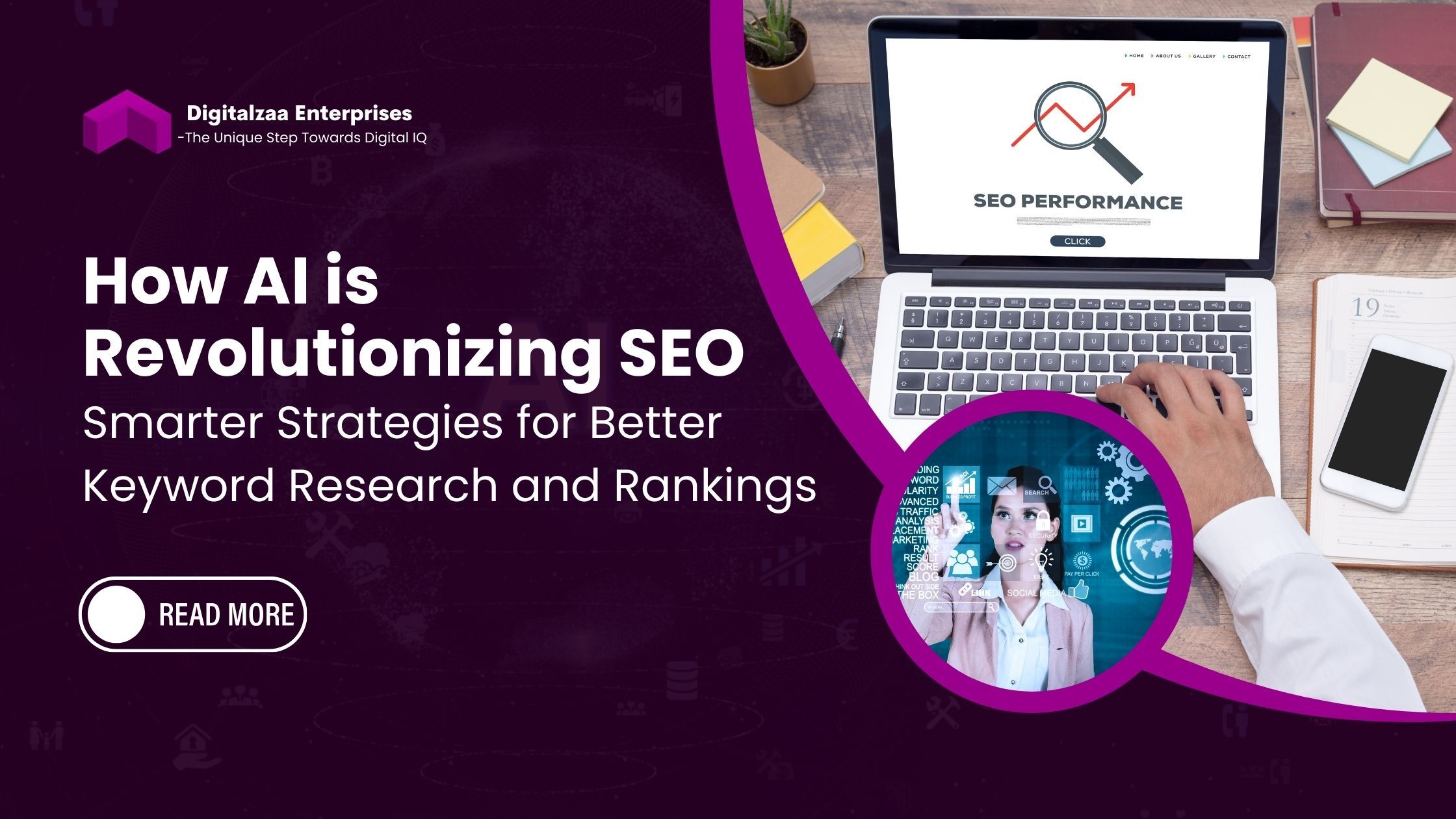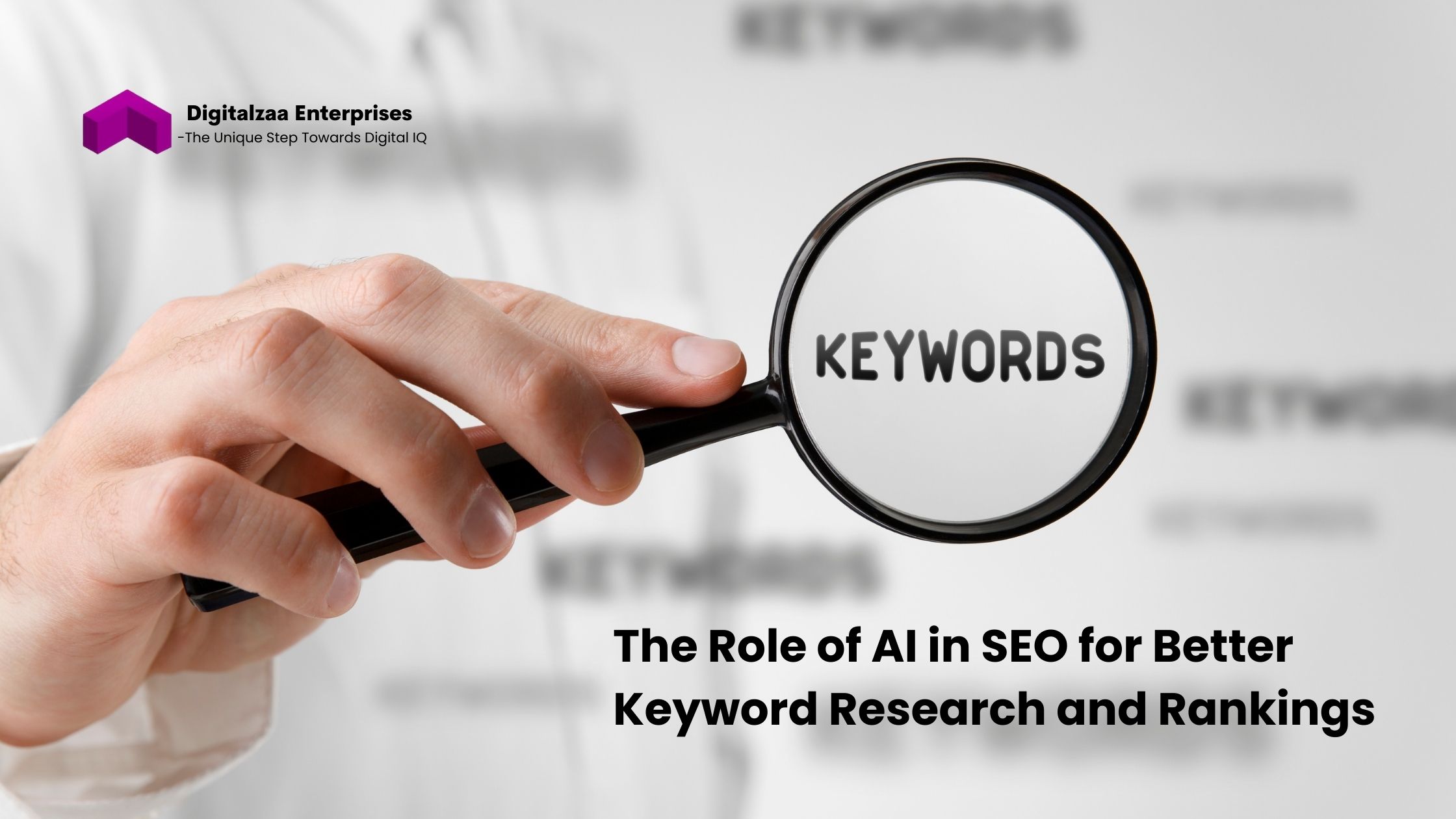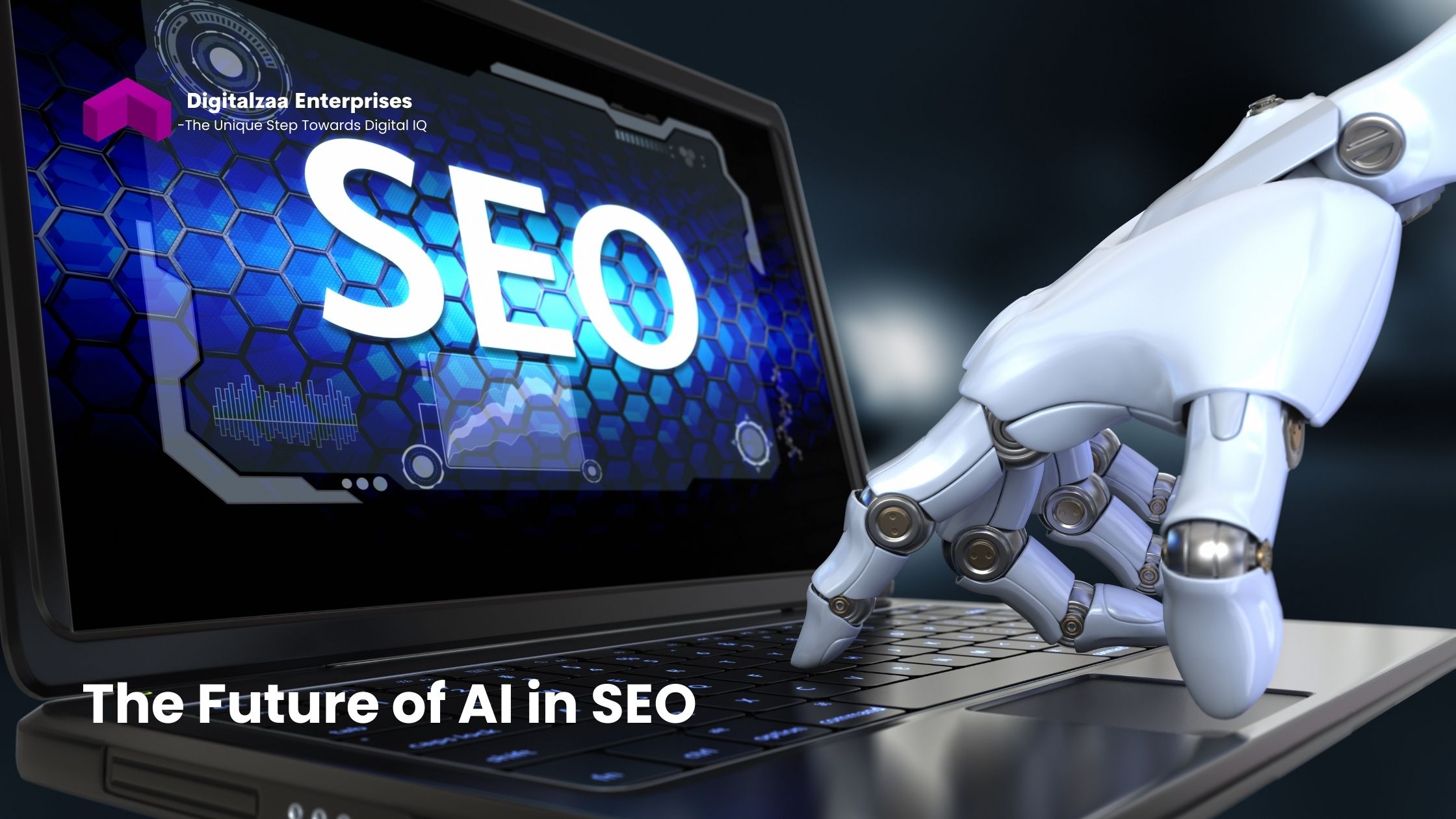How AI is Revolutionizing SEO: Smarter Strategies for Better Keyword Research and Rankings

SEO has constantly evolved to keep up with changing algorithms, search trends, and user behavior. However, the rise of Artificial Intelligence (AI) is transforming SEO like never before. AI-driven tools are making keyword research more precise, optimizing content for relevance, improving technical SEO, and enhancing user experience—all of which contribute to better search rankings.
With AI-powered algorithms like Google’s RankBrain and BERT, search engines now focus more on user intent rather than just keywords. Businesses must leverage AI-driven insights to create high-quality, engaging content that meets search intent. Additionally, AI tools are streamlining site audits, backlink analysis, and predictive analytics, allowing SEO professionals to make data-driven decisions efficiently.
AI also plays a crucial role in personalizing search results, improving voice search optimization, and automating repetitive SEO tasks. From AI-generated content recommendations to smart chatbots that enhance engagement, AI is reshaping how businesses optimize for search engines.
To stay ahead of the competition, companies must adopt AI-powered SEO strategies that align with evolving search algorithms. This blog delves into how AI is revolutionizing SEO and the intelligent tactics businesses can use to enhance visibility, improve rankings, and drive organic traffic in the digital landscape.
The Role of AI in SEO for Better Keyword Research and Rankings
AI is transforming SEO in various ways, from automating repetitive tasks to providing deep insights into user behavior. Search engines like Google use AI-powered algorithms, such as RankBrain and BERT, to deliver more relevant search results. Understanding how AI is embedded in search engines helps marketers align their strategies accordingly.
1. AI-Powered Keyword Research
Keyword research is the backbone of SEO, and AI is making it more efficient. Traditional keyword research tools provide keyword suggestions based on search volume and competition. However, AI-powered tools like Ahrefs, SEMrush, and Clearscope analyze intent, trends, and contextual relevance, helping businesses target high-impact keywords.
Smarter Strategies:
- Use AI-driven keyword research tools to find long-tail keywords and semantic variations.
- Focus on search intent (informational, navigational, transactional, commercial) to align content accordingly.
- Leverage predictive analytics to identify trending topics before they become competitive.
2. AI-Enhanced Content Optimization
Content remains king in SEO, but AI is making content creation and optimization smarter. AI-driven tools like SurferSEO, Frase, and MarketMuse analyze top-performing pages and suggest improvements.
Smarter Strategies:
- Use AI tools to optimize content structure, ensuring the right keyword density, readability, and formatting.
- Implement NLP (Natural Language Processing) techniques to make content more relevant to search engine algorithms.
- Generate content outlines using AI to ensure better coverage of the topic.
3. AI for Technical SEO
Technical SEO ensures that a website is optimized for crawling and indexing. AI tools like Google’s PageSpeed Insights, Screaming Frog, and Sitebulb help identify and fix issues that impact rankings.
Smarter Strategies:
- Utilize AI-powered tools to identify broken links, duplicate content, and indexing issues.
- Use AI chatbots and automated scripts to monitor and improve website speed and performance.
- Implement structured data markup with AI to enhance search engine understanding of content.
4. AI for Voice Search Optimization
With the rise of voice assistants like Google Assistant, Siri, and Alexa, optimizing for voice search is crucial. AI-driven voice recognition is changing the way users search.
Smarter Strategies:
- Optimize content for conversational queries using natural language and question-based formats.
- Target featured snippets since voice search results often pull from them.
- Ensure mobile-friendliness and fast loading speeds, as voice search users prioritize efficiency.
5. AI for Predictive Search and Rank Tracking
Google’s AI-driven algorithm uses machine learning to predict user intent. AI-based SEO tools can track rankings more efficiently and forecast upcoming search trends.
Smarter Strategies:
- Leverage AI tools like Google Trends and Moz Pro to predict upcoming trends and optimize content ahead of time.
- Use AI-powered rank tracking tools to monitor SERP positions and make data-driven optimizations.
6. AI for Personalized User Experience (UX)
AI can analyze user behavior and deliver personalized search results, influencing dwell time, bounce rate, and conversions.
Smarter Strategies:
- Implement AI-driven chatbots to enhance engagement and customer interaction.
- Personalize content recommendations based on past user behavior.
- Optimize UX by using AI to analyze heatmaps, session recordings, and navigation patterns.
7. AI for Link Building and Outreach
AI is transforming link-building strategies by identifying high-quality backlink opportunities and automating outreach campaigns.
Smarter Strategies:
- Use AI-powered tools like Hunter.io and BuzzStream to find and reach out to relevant websites.
- Automate link-building efforts by using AI-generated personalized email templates.
- Analyze competitor backlinks and use AI suggestions to acquire similar or better-quality links.
The Future of AI in SEO

AI is continuously evolving, and its role in SEO will expand significantly in the coming years. One of the most notable advancements is AI-generated content, which is becoming increasingly human-like and harder to distinguish from manually written text. As AI-powered writing tools improve, businesses can scale content production while maintaining high quality and relevance.
Additionally, personalized search experiences will become more refined as AI analyzes user behavior and intent. Search engines will tailor results based on browsing history, preferences, and engagement patterns, making SEO strategies more user-centric.
Moreover, advanced AI-driven search algorithms will enhance search accuracy, but they will also make SEO more competitive and challenging. Google’s AI models, such as RankBrain and MUM, will continue to prioritize content that best matches user intent, requiring businesses to refine their content strategies.
Finally, automated SEO workflows will streamline tasks like keyword research, content optimization, and technical audits. AI-powered tools will handle repetitive tasks, allowing SEO professionals to focus on strategy and creativity.
Overall, AI will reshape SEO by making it more efficient, data-driven, and personalized, compelling businesses to adapt to emerging trends for sustained online visibility and higher rankings.
Conclusion
AI is revolutionizing SEO by making keyword research smarter, content optimization more effective, and technical SEO more efficient. Businesses that embrace AI-driven SEO strategies will achieve better rankings, enhanced user experience, and higher conversions. As AI technology advances, staying updated with the latest tools and techniques will be key to maintaining a competitive edge in the digital landscape.
By leveraging AI’s capabilities, businesses can create smarter SEO strategies that not only improve rankings but also enhance overall digital marketing efforts. The future of SEO is AI-driven, and now is the time to integrate these cutting-edge techniques into your SEO strategy.


